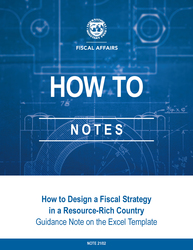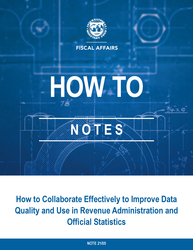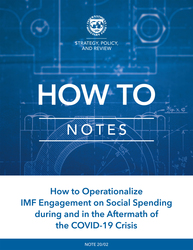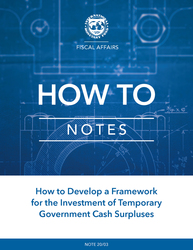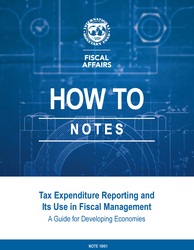
Tax Expenditure Reporting and Its Use in Fiscal Management: A Guide for Developing Economies
This note aims to inform governments on how to account for tax expenditures and use that information in fiscal management.
READ MORE...
Volume/Issue:
Volume 2019
Issue 002
Publication date:
ISBN:
Add to Cart by clicking price of the language and format you'd like to purchase
Available Languages and Formats
Topics covered in this book
This title contains information about the following subjects.
Click on a subject if you would like to see other titles with the same subjects.
Public Finance , Taxation - General , FADHTN , HTN , tax expenditure , expenditure estimate , accounting exercise , cost estimate , outlay expenditure , value-added tax , property tax , progressive tax , tax burden , Tax expenditures , Income tax systems , Value-added tax , Income and capital gains taxes , Personal income tax , Africa
Also of interest
Summary
This note aims to inform governments on how to account for tax expenditures and use that information in fiscal management. The emphasis is on developing and emerging market economies, where the use of such accounts is in its infancy because of data constraints, insufficient human and financial resources, and weak fiscal institutions. Most developing economies, more-over, do not have tax policy units in their Ministry of Finance to provide analytical support to the govern¬ment and legislature that integrates all revenue policy aspects. As a result, the tax policy framework can be fragmented: line ministries compete in the provision of sectoral tax incentives, but do not report on their cost. The note is organized as follows. The second section outlines the role that tax expenditure measurement and reporting can play in fiscal management. The third section provides a step-by-step approach on how tax expenditure accounts can be built, with emphasis on data, methods and models, and institutional requirements. The section is concerned primarily with the direct cost of tax expenditures—that is, the revenue forgone because of them. It does not deal with their indirect costs, which could include economic efficiency losses and additional tax administration resources, and it does not address assessment of the benefits of tax expenditures. The fourth summarizes the current sta¬tus of tax expenditure reporting in developing econo¬mies, with some reference to advanced economies. The last section concludes.
Copyright © 2010 - 2026
Powered by:
AIDC
